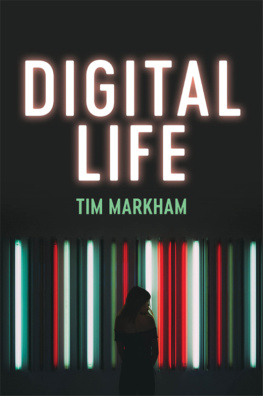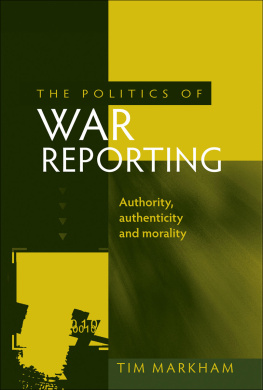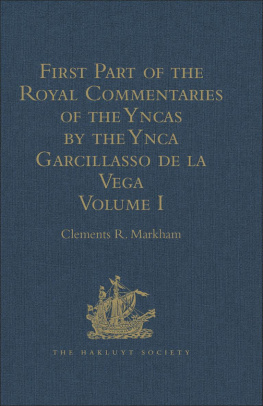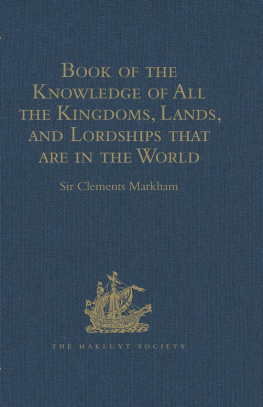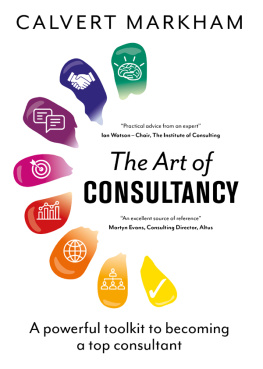Tim Markham - Digital Life
Here you can read online Tim Markham - Digital Life full text of the book (entire story) in english for free. Download pdf and epub, get meaning, cover and reviews about this ebook. year: 2020, genre: Politics. Description of the work, (preface) as well as reviews are available. Best literature library LitArk.com created for fans of good reading and offers a wide selection of genres:
Romance novel
Science fiction
Adventure
Detective
Science
History
Home and family
Prose
Art
Politics
Computer
Non-fiction
Religion
Business
Children
Humor
Choose a favorite category and find really read worthwhile books. Enjoy immersion in the world of imagination, feel the emotions of the characters or learn something new for yourself, make an fascinating discovery.
- Book:Digital Life
- Author:
- Genre:
- Year:2020
- Rating:3 / 5
- Favourites:Add to favourites
- Your mark:
- 60
- 1
- 2
- 3
- 4
- 5
Digital Life: summary, description and annotation
We offer to read an annotation, description, summary or preface (depends on what the author of the book "Digital Life" wrote himself). If you haven't found the necessary information about the book — write in the comments, we will try to find it.
Digital Life — read online for free the complete book (whole text) full work
Below is the text of the book, divided by pages. System saving the place of the last page read, allows you to conveniently read the book "Digital Life" online for free, without having to search again every time where you left off. Put a bookmark, and you can go to the page where you finished reading at any time.
Font size:
Interval:
Bookmark:

For Emma
TIM MARKHAM
polity
Copyright Tim Markham 2020
The right of Tim Markham to be identified as Author of this Work has been asserted in accordance with the UK Copyright, Designs and Patents Act 1988.
First published in 2020 by Polity Press
Polity Press
65 Bridge Street
Cambridge CB2 1UR, UK
Polity Press
101 Station Landing
Suite 300
Medford, MA 02155, USA
All rights reserved. Except for the quotation of short passages for the purpose of criticism and review, no part of this publication may be reproduced, stored in a retrieval system or transmitted, in any form or by any means, electronic, mechanical, photocopying, recording or otherwise, without the prior permission of the publisher.
ISBN-13: 978-1-5095-4105-8
ISBN-13: 978-1-5095-4106-5(pb)
A catalogue record for this book is available from the British Library.
Library of Congress Cataloging-in-Publication Data
Names: Markham, Tim, 1974- author.
Title: Digital life / Tim Markham.
Description: Cambridge, UK ; Medford, MA : Polity Press, 2020. | Includes
bibliographical references and index. | Summary: A leading scholars
provocative call to reimagine the way we think about digital media in
everyday life-- Provided by publisher.
Identifiers: LCCN 2019051000 (print) | LCCN 2019051001 (ebook) | ISBN
9781509541058 (hardback) | ISBN 9781509541065 (paperback) | ISBN
9781509541072 (epub)
Subjects: LCSH: Digital media--Social aspects. | Information
technology--Social aspects.
Classification: LCC HM851 .M3724 2020 (print) | LCC HM851 (ebook) | DDC
303.48/33--dc23
LC record available at https://lccn.loc.gov/2019051000
LC ebook record available at https://lccn.loc.gov/2019051001
Typeset in 11 on 13pt Adobe Garamond
by Fakenham Prepress Solutions, Fakenham, Norfolk, NR21 8NL
Printed and bound in Great Britain by TJ International Limited
The publisher has used its best endeavours to ensure that the URLs for external websites referred to in this book are correct and active at the time of going to press. However, the publisher has no responsibility for the websites and can make no guarantee that a site will remain live or that the content is or will remain appropriate.
Every effort has been made to trace all copyright holders, but if any have been overlooked the publisher will be pleased to include any necessary credits in any subsequent reprint or edition.
For further information on Polity, visit our website: politybooks.com
This book is intended as a provocation to rethink our pathologization of ordinary citizens digital lives as oblivious, apolitical and self-centred. We accept that people care, but about the wrong things and in the wrong ways not least the emotional, attention-seeking, virtue-signalling outpourings seen on social media platforms. In academic circles, the concern is that the quest for experience in our digital lives is crowding out politics, at least politics conventionally conceived as solidarity with out-groups as well as in-groups, awareness of democratic rights and their erosion by commercial and surveilling forces, and commitments to political institutions and processes. This chapter aims to set out the books stall: instead of fretting about people thinking, feeling and acting in the wrong ways, we should do what any good phenomenologist would do: start with the experience of everyday digital life and ask not just what we stand to lose in a fast-changing world, but what we stand to gain.
Digital Life resists the idea that there is something about the digital age that is corroding, corrupting or diluting of what it means to be human, to the same extent that it rejects a utopian projection of the digital bermensch. Digital harms come in many forms that are not equally attributable to the logic of digitization, to the neoliberal economic framework that has facilitated its spread, or indeed to the forces of governmentality Michel Foucault diagnosed in the march of modernity. There are three broad groupings of problematizations of the pervasion of contemporary society by digital technologies, each requiring a distinct analytic lens. First there is the outright damage, often criminal in nature, wrought with the aid of digital platforms, software and hardware: disinformation campaigns, hate speech, propaganda, incitement to violence, financial scams, identity theft and so on. Collectively we defend ourselves against these through legal and political channels, though this is difficult since data is largely indifferent to national and other strictures. Beyond that is the question of how to ensure that citizens are better able to recognize and evade such harms, and here lies the suspicion that there is something unique about digital technologies regarding their ability to make things seem other than they actually are.
The thesis to be developed is that this wariness about the inherent inauthenticity of the digital is unwarranted. Drawing on phenomenological arguments, it will be suggested that whatever the digital brings into being is just as real as anything else; we always start from an inauthentic present, rather than some pure origin which has come to be contaminated by progressive technological revolutions in representation and communication. This insight has real-world implications for policymakers and regulators as well as scholars, for it raises the essential question of what a citizens knowledge of digital risks should look like. This, true to the phenomenological tradition, will not amount to the scales falling from an individuals eyes so that they see the thing itself, stripped of layers of mediation. Rather, it has to be a practical, even bodily knowledge. That word bodily can sound odd in this context, but it boils down to three straightforward propositions. First, digital knowledge can be affective rather than conscious, merely felt rather than hard won through cognition. Second, practical knowledge is about position-taking in relation to objects encountered in everyday life, increasingly digitally. And third, how we experience everyday life is less a series of discrete encounters and more about movement through an environment in which objects often barely register at all. Put together, the knowledge required by citizens is neither cynical, forensic nor defensive. It instead consists in a sceptical agility: those swipes and taps we sometimes suspect render us impressionable can also be the deft application of acquired wisdom, knowing what kind of distance to keep as we move from one thing to the next.
The second type of critique of digitization concerns its systemic underpinnings and implications: the profit-seeking raison dtre of social media platforms and their complicity in further entrenching global inequalities; the degradation of public spheres by a combination of the elevation of the hyperbolic and personal above the measured and reasoned, the anonymity of some digital spaces, and the formation of what Richard Sennett (2012) calls intentive communities and we have come to know as silos or filter bubbles; the quiet rolling out of intrusive and illiberal legislation supposedly in the interests of security; the wielding of facial recognition and other monitoring capacities by authoritarian as well as democratic states; and the massive environmental cost of producing, maintaining and disposing of our digital infrastructures, systems and devices. In all these areas we rely heavily on campaigners, activists and experts to pile pressure on politicians and regulators in order to defend basic human rights of privacy, freedom of speech and accountability. Beyond that is the question of how we can ensure that the public are better informed about such systemic issues, especially because there is again a lingering suspicion that there is something about the way digital systems are designed, function and are weightlessly experienced that is inherently geared towards concealment. A pragmatic, if bitter, lesson to be learned from journalism is that there is in practice little scope for making people care more than they do, however serious the issue. But there are options other than throwing up our hands in resignation or doggedly persevering in trying to get people to see how things really are. As with the first category, then, the alternative to be set forward here is essentially ecological, a matter of how we move through digitally enabled and pervaded worlds. Different from public awareness traditionally conceived, this is knowledge of what it means to live and navigate through a world of which all of these phenomena are features, in which all manner of others also exist and suffer its depravities, and in which I am complicit and responsible.
Next pageFont size:
Interval:
Bookmark:
Similar books «Digital Life»
Look at similar books to Digital Life. We have selected literature similar in name and meaning in the hope of providing readers with more options to find new, interesting, not yet read works.
Discussion, reviews of the book Digital Life and just readers' own opinions. Leave your comments, write what you think about the work, its meaning or the main characters. Specify what exactly you liked and what you didn't like, and why you think so.

